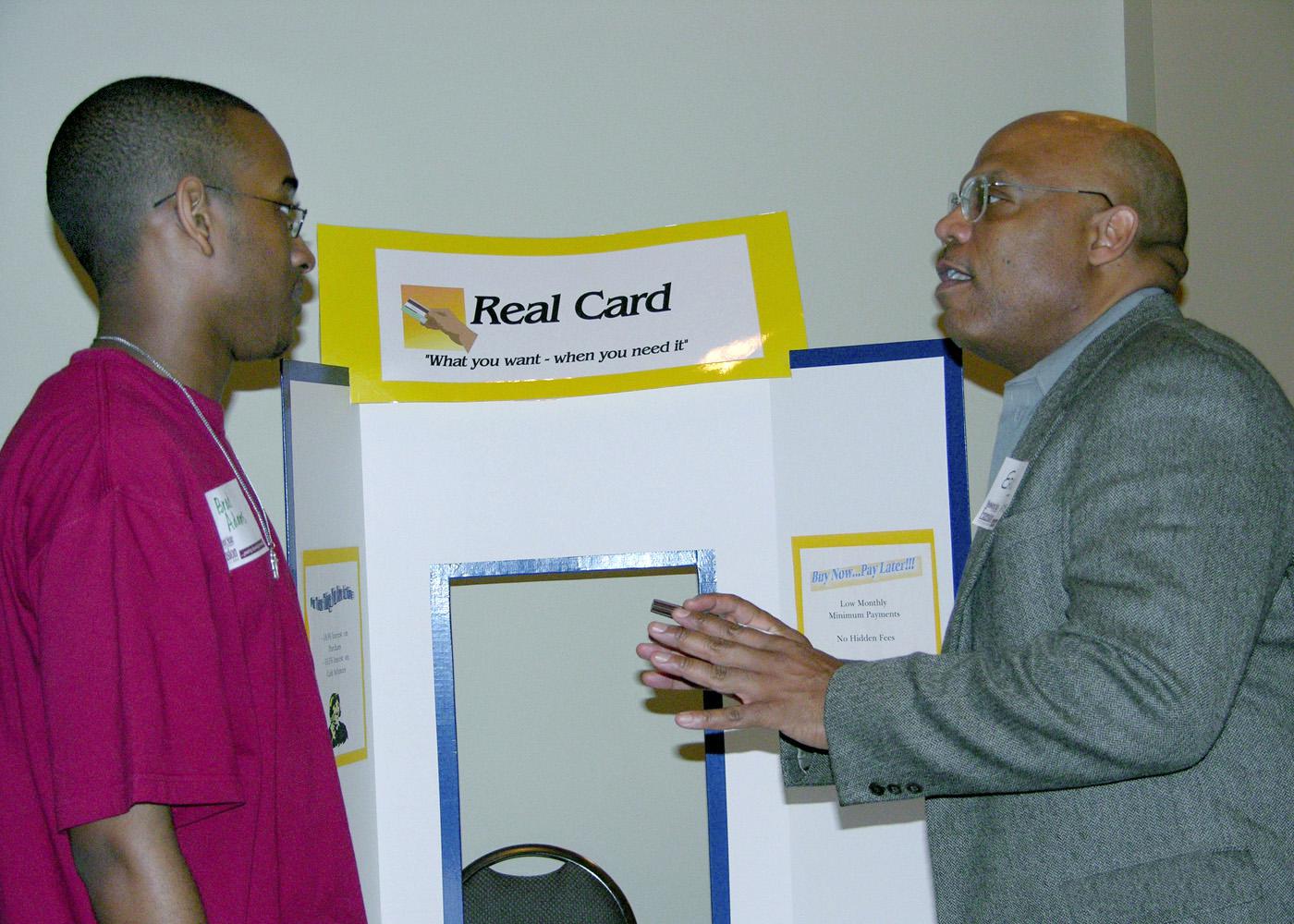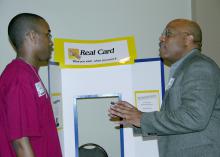Information Possibly Outdated
The information presented on this page was originally released on August 11, 2005. It may not be outdated, but please search our site for more current information. If you plan to quote or reference this information in a publication, please check with the Extension specialist or author before proceeding.
Youth need a reality check early in life
MISSISSIPPI STATE -- Middle and high school students are discovering that it is never too early to learn about finances with "reality checks" supplied by Mississippi State University's 4-H program.
Marianne Clark, Grenada County 4-H agent, is helping to bring a program called Reality Check to youth, and sometimes adults, needing help with life's financial lessons.
"Reality Check is a supplemental activity for people who are teaching financial issues to youth, working in money management or helping adults who need to be educated about making financial decisions," Clark said. "This is not an entire curriculum, but it can enhance lessons taught in classrooms or group settings such as community centers or churches."
Reality Check introduces students between grades seven and 12 to the financial realities of being adults. Participants are given a career, family scenario and an income before proceeding to 16 stations which represent the government, housing, insurance, banking, child-care facilities and grocery stores, among other areas of life's expenses. The stations usually are manned by parents of participants or community volunteers. Often, the volunteers will be from the business represented, such as an insurance agent or banker.
"Statistics suggest that credit is being issued at a much younger age. Consumers of all ages tend to spend more when buying on credit than when they use cash," Clark said. "Progressing through this scenario helps participants learn the true price of their choices."
When combined with existing financial literacy materials, the program will help participants make wise decisions as they face various options such as types of insurance, housing, entertainment, products or utilities.
Developed by a former Tennessee 4-H agent and her spouse, Mississippi's 4-H program is training 4-H agents and volunteers around the state who want to use this material.
"We have to teach young people about financial issues before we can expect them to make wise decisions," Clark said. "Unfortunately, many adults are not modeling good financial behavior for the children. Some parents are going deep into debt and satisfying their children's whims. The next generation needs to appreciate the value of the dollar."
Sally Smith of Grenada County spent years in a vocational school before retiring in 2004. She tried to teach students financial lessons along with other topics.
"You can talk and talk all you want to in a classroom, but nothing impacts the learning process like actually seeing the money leave your hands," Smith said. "Today's youth think they have an understanding because they are paying for some of their expenses, but their parents are still paying for cell phones, insurance, groceries or the roof over their heads."
She described the Reality Check as a practical simulation of life. Participants gain an appreciation for the big picture of a family's needs. Each student proceeds through their scenario, which includes expenses such as haircuts and pet care.
"They have an idea that a certain paycheck will give them freedom, but then expenses start adding up in every aspect of their life," Smith said. "It's a real eye-opening experience."
Margaret Prisock, assistant branch manager and vice president of AmSouth Bank in Starkville, took part in a recent simulation.
Seated behind a bank's storefront, Prisock saw the reactions of the participants.
"Some were quite frustrated when they would have to come back. 'Here I am again. I've got to take money out,' they would say. They may have had good intentions of putting money in savings, but then they'd have to come back when they couldn't cover their expenses," Prisock said. "It felt like a real life situation. I see it every day at work."
Prisock said she believes more programs like Reality Check would be helpful.
"It teaches children that money doesn't just grow on trees. They learn about expenses and the importance of a budget," she said.



